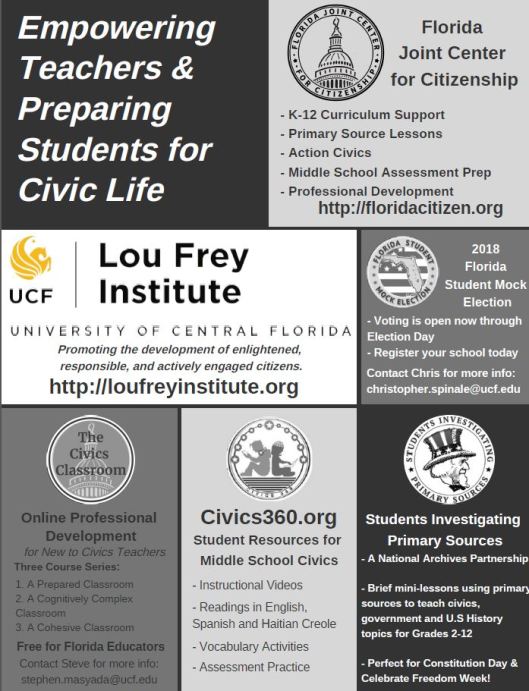It sounds like a parody of a professor’s life, but I have actually attended conferences since 2016 on the themes of: 1) empathy and compassion, 2) civility, 3) responsiveness, and 4) tolerance. I missed an excellent-looking meeting on 5) humility and conviction, but I teach those concepts in classes on Gandhi’s political thought. Nobody has invited me to a meeting about 6) openness or 7) fallibalism, but I would consider attending.
In case you’re wondering, the participants in these meetings have been delightfully humble, empathetic, civil, and so on. It doesn’t mean we were right.
The question is: which intellectual virtues should we develop in ourselves and in others in various settings? This is not a matter of rules or controls. In many settings, people have–and should have–rights to talk and respond to others as they wish. It’s more a matter of what we should strive for, ourselves, and sometimes how we should assess others. For example, if I’m a high school teacher who assigns students to discuss a contentious issue, on what basis should I assess their interactions?
The full list of criteria would also include 8) truth and 9) justice. For instance, you can make a claim that is admirably civil, empathetic, and responsive, yet demonstrably false. That is not generally desirable. Or perhaps you could engage in an admirable way with other people while making claims that are simply unjust. You could be an avuncular and gracious Nazi. Unless we adopt a completely procedural understanding of justice (it just is what people decide that it is, by discussing), there can be a gap between a good discussion and a just outcome.
But the first seven criteria seem important even if we leave truth and justice aside for the moment. First, it matters how our discussions go because it’s one way that we explore truth and justice. Second, we should simply relate to each other well. By conversing, we form or sustain a community and share a social space. So the quality of discourse affects the quality of the commons.
So which of the first seven are virtues, for whom, and in which combinations?
- Empathy is an affective reaction that can distort our judgment (for instance, by focusing us too much on a concrete case) and that can be unwelcome or unhelpful. If you’re a victim of racial injustice, you don’t want me, a white guy, to say that I feel your pain–or even to try to feel it. You want me to keep a clear head and do something about it.
- Civility is sometimes defined in terms of rules and norms of politeness. For instance, to use an offensive word or to yell at another person is uncivil. Politeness actually has value in many circumstances, but civility-as-politeness doesn’t seem to be the core issue. You can say horrible things with polite words, or valuable things laced with profanity. As Tony Laden notes in his contribution to A Crisis of Civility?: Political Discourse and Its Discontent, there is a different scholarly literature in which civility means not politeness but “a form of engagement in a shared political activity characterized by a certain kind of openness and a disposition to cooperate.” That seems the right direction but not easy to assess in practice. It takes us to …
- Responsiveness. We all have a valid interest in others’ being responsive to us. It seems to be a virtue. But … should you respond positively to a heinous new idea? Does being genuinely responsive entail shifting your views closer to the speaker’s? Or can you be responsive without changing your mind? If so, what does that entail?
- Tolerance is much better than intolerance, as a general rule. But it doesn’t seem sufficient. We don’t merely want to be tolerated, but also welcomed and listened to. At the same time, some ideas are intolerable. Tolerance doesn’t seem necessary or sufficient for good interactions.
- “Humility and conviction” is the name of a great program at UConn. This combination of words has the advantage of balance. We should be humble, because we can easily be wrong; but we should also take a stand. Humility alone is compatible with being wishy-washy. But conviction without humility is zealotry. This is (in the broadest sense) an Aristotelian way to think about virtues–as the mean between extremes. It raises the standard problem for Aristotelian accounts: What is the mean in each circumstance? Who should be more humble, and should should be less so?
- Openness is one of the Big Five personality traits. It seems desirable but needs some balance and moral direction. Otherwise, it shades into prurient curiosity or thrill-seeking. For example, openness correlates with use of illegal drugs. Although I am not an alarmist about drugs, a psychological trait that could either cause you to listen well to new ideas or experiment with ecstasy doesn’t seem to be reliably a virtue.
- Fallabilism means knowing that you could be wrong. “The spirit of liberty is the spirit which is not too sure that it is right; the spirit of liberty is the spirit which seeks to understand the minds of other men and women” (Learned Hand). We should all be fallibalists, but again the question is what this means in practice. For example, I know colleagues involved in Science and Technology Studies who are primarily concerned about the excessive authority of science and want to preserve skepticism about climate change. My own view is that we should declare anthropogenic global warming a settled issue and decide what to do about it. But that would be less fallibalist.
See also: Empathy and Justice; civility: not too much, not too little; what sustains free speech?; responsiveness as a virtue.

 Tech Tuesdays are a series of learning events from NCDD focused on technology for engagement. These 1-hour events are designed to help dialogue and deliberation practitioners get a better sense of the online engagement landscape and how they can take advantage of the myriad opportunities available to them. You do not have to be a member of NCDD to participate in our
Tech Tuesdays are a series of learning events from NCDD focused on technology for engagement. These 1-hour events are designed to help dialogue and deliberation practitioners get a better sense of the online engagement landscape and how they can take advantage of the myriad opportunities available to them. You do not have to be a member of NCDD to participate in our 
 The
The 


 Wednesday, April 17th
Wednesday, April 17th Wednesday, April 17th
Wednesday, April 17th
 Wednesday, April 24th
Wednesday, April 24th Wednesday, April 24th
Wednesday, April 24th
